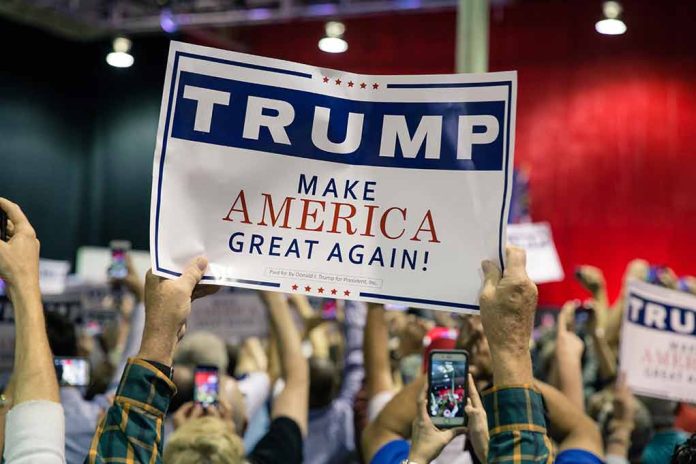
Donald Trump’s national concealed carry reciprocity plan aims to strengthen Second Amendment rights, sparking debates nationwide.
At a Glance
- Trump plans to implement national concealed carry reciprocity to align with his Second Amendment agenda.
- The plan’s success is uncertain, facing political and law enforcement opposition.
- Trump draws parallels between concealed carry permits and driver’s license recognition.
- Rep. Massie supports permitless carry, reinforcing constitutional rights without government permissions.
Concealed Carry Reciprocity Initiative
President-elect Donald Trump has been a long-time advocate of a national concealed carry reciprocity system, mirroring the manner in which driver’s licenses are accepted across state lines. This initiative is a cornerstone of Trump’s ongoing mission to bolster Second Amendment rights. Advocates, like Rep. Thomas Massie, have echoed Trump’s sentiment, pushing for legislation such as HR9534, which aims to accept permitless carry nationwide.
Massie emphasizes the importance of exercising constitutional rights without needing extensive government approval. The proposal is expected to face considerable challenges, with websites like GovTrack.us citing a mere 1% probability of enactment in the current political environment.
Donald Trump announces that he'll sign national concealed carry reciprocity.
This means no matter which state you're in, if you've got your concealed carry license, each state will still have to honor it. pic.twitter.com/KwYcVlHPI9
— Daily Loud (@DailyLoud) November 11, 2024
Implications of National Recognition
With support from Trump’s Agenda 47 and Project 2025, these measures would possibly ease firearm sales and challenge state bans on assault weapons. However, opposition comes from various law enforcement organizations that prioritize public safety over the interests of the gun lobby. Critics argue that these actions contradict the Republican Party’s stated support for states’ rights by imposing federal regulations on gun laws.
“A driver’s license works in every state, so it’s common sense that a concealed carry permit should work in every state,” expresses Trump.
This initiative aims to build on the momentum of the 29 states that already recognize Constitutional Carry. Massie and Trump see this as an opportunity to solidify gun rights into federal law. Nonetheless, these proposals raise concerns about potentially reduced safety standards and law enforcement’s ability to manage gun-related issues.
Over the weekend President-elect Donald Trump announced a push for national concealed carry reciprocity, a move which would make the concealed permit of any one state valid in the other 49.
The post President-Elect Trump Announces Push for National Co… https://t.co/8rowMl9lZ1
— ZBreakingNewz (@ZBreakingNewz) November 11, 2024
Securing Second Amendment Rights
Project 2025 seeks to standardize concealed carry laws across states, ensuring that law-abiding citizens who hold a concealed carry permit in one state can legally carry in all states. Supporters argue this plan will strengthen Second Amendment rights and promote individual safety by reducing inconsistencies in state laws. The project also includes measures to reduce bureaucratic oversight and support local law enforcement, aiming to uphold freedoms while respecting responsible gun ownership.
“No one should have to beg the government to exercise a constitutionally protected right anywhere in the country,” says Rep. Thomas Massie.
The expansion of Second Amendment rights through policies that support national concealed carry reciprocity is central to enhancing public safety by empowering responsible citizens to protect themselves. While the Biden administration’s measures, like the Bipartisan Safer Communities Act, focused on regulatory restrictions, Trump’s approach emphasizes protecting individual freedoms and the right to self-defense. As Trump assumes office, his commitment to reinforcing Second Amendment rights will play a pivotal role in shaping America’s future gun policies, aiming to uphold constitutional freedoms for all Americans.














